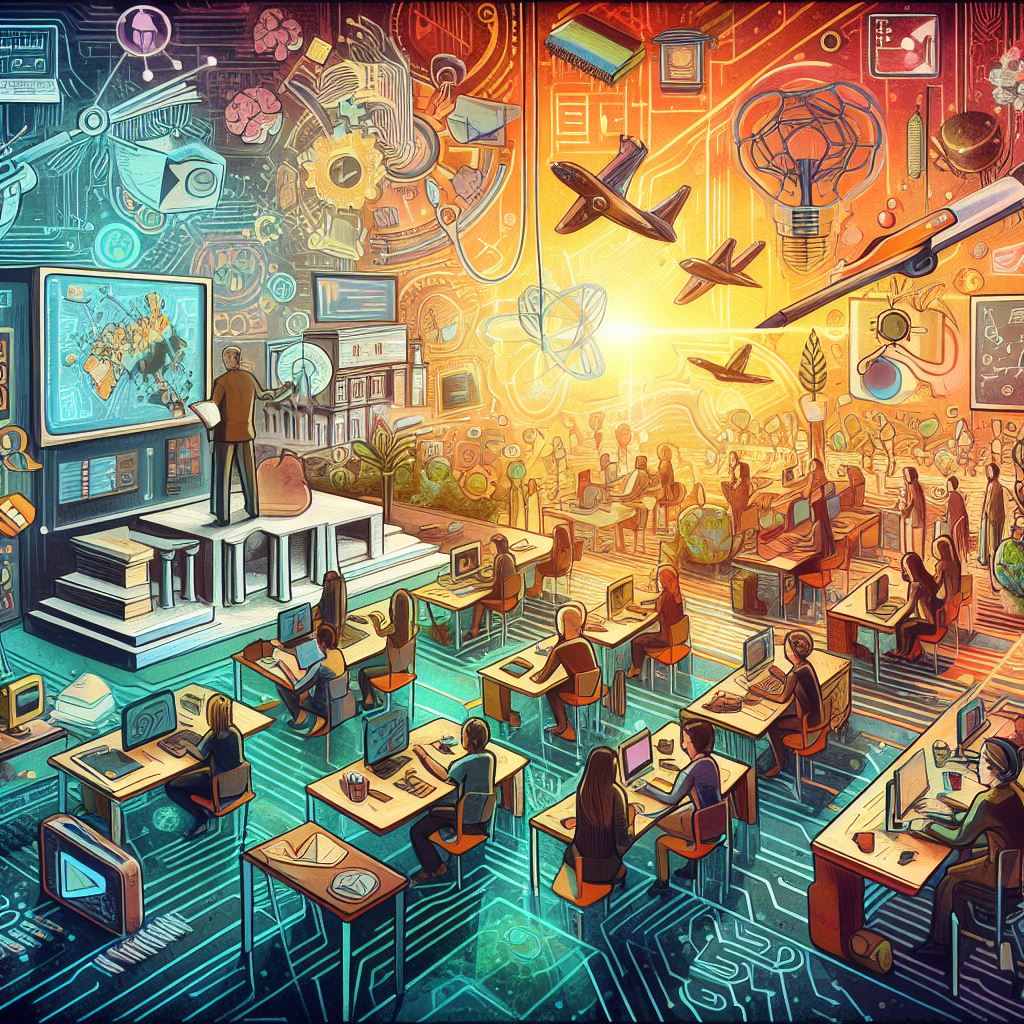
Navigating the Nexus of Technology and Pedagogy: The Future Landscape of Education
Introduction
Embarking upon the voyage through the nuanced intertwining of technology and pedagogy, we explore an ecosystem where educational technology (EdTech) not only enhances learning experiences but catalytically alters pedagogical approaches. The matrix of integrating technology in contemporary pedagogy reveals avenues that are shaping a futuristic panorama of global education.
A. Current State and Anticipated Trends of EdTech
-
The Rise of Digital Learning Platforms:
- Example: The surge in platforms like Coursera and Khan Academy.
- Impact: Enabling accessibility and fostering continuous learning.
-
Evolution of Virtual Classrooms:
- Case Study: Zoom and Google Meet aiding educational institutions during the pandemic.
- Trend Projection: Hybrid educational models amalgamating offline and online pedagogy.
B. Roles and Implications of AI and ML in Pedagogy
-
Smart Learning Environments:
- Quote: "The function of education is to teach one to think intensively and to think critically..." - Martin Luther King Jr.
- Anticipated Trend: Tailoring learning pathways using AI to suit individual student needs.
-
Assessment Automation and Analytics:
- Example: Application of machine learning (ML) in assessing and providing insights into students' performance and learning patterns.
- Ethical Considerations: Ensuring fairness and eliminating biases in AI-powered assessment tools.
Bridging the Gap: Symbiosis Between Technology and Traditional Teaching
A. Successful Integrations and Illustrations
Case Study 1: “Flipping the Classroom”
Employing technology to ‘flip’ classrooms, where instructional content is consumed at home via digital platforms, and classrooms become interactive, problem-solving spaces, has gained traction.
Case Study 2: “VR in Historical Studies”
Virtual reality (VR) providing immersive experiences of historical events, thereby transforming theoretical knowledge into tangible, interactive learning.
B. Obstacles and Triumph Over Adversities
- Barrier Identification:
- Technological disparities among students.
- Resistance to change among traditional educators.
- Navigating Through Challenges:
- Strategies: Incorporating a phased approach to EdTech implementation.
- Solutions: Facilitating robust training programs for educators.
Strategies for Integrating Technological Education: A Forward-Thinking Approach
A. Creating a Collaborative EdTech Ecosystem
- Ensuring Equitable Access:
- Global Perspective: Addressing disparities in technological access across different geographical regions.
- Ensuring Effective Implementation:
- Quote: "Technology will not replace great teachers but technology in the hands of great teachers can be transformational." - George Couros
- Approach: Molding technology to complement pedagogical objectives.
B. Ensuring Ethical and Data Privacy Compliances
- Data Privacy in Digital Learning:
- Impact: Addressing concerns related to student data security and privacy.
- Ethical Implementation:
- Emphasis: Aligning technological application with moral and ethical educational norms.
Impact and Prospective Exploration: EdTech in Future Pedagogy
A. Engagement, Accessibility, and Learning Outcomes
- Student-Centric Approach:
- Example: Personalized learning modules that cater to different learning styles and paces.
- Outcome Enhancement:
- Data Analysis: Employing technological tools to analyze and enhance learning outcomes.
B. Global Perspectives in Technological Education
Inclusion and Equity
- Example: Implementing assistive technologies to facilitate inclusive education.
- Analysis: Scrutinizing the impact of technology on mitigating educational disparities globally.
Conclusion: Adapting Pedagogical Approaches to Technological Evolution
The journey through technological and pedagogical confluence unveils a landscape where educational paradigms are not only being shaped by technology but are also moulding technology to cater to unique, dynamic educational requisites. From AI-enhanced personalized learning to ethical considerations in implementing EdTech, the future of education encompasses an inclusive, accessible, and technologically enriched environment where pedagogy is continually evolving, adapting, and innovating.
Technology Education Future Education




